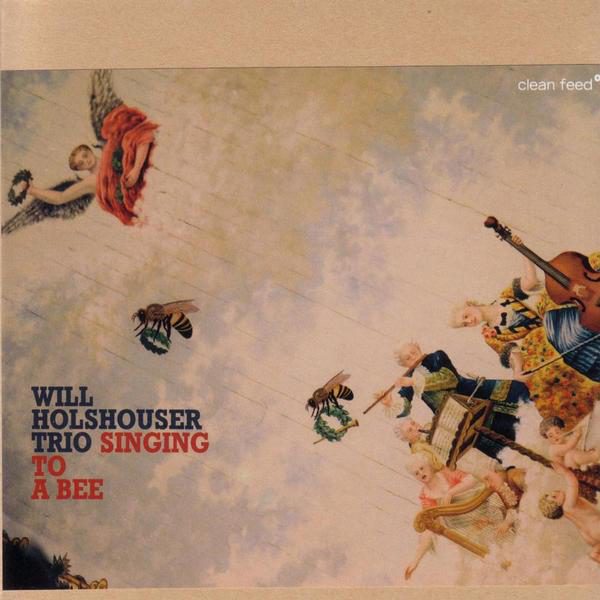
4,50 €
They’ve done it again. The Will Holshouser Trio’s new album “Singing to a Bee” takes its title from the novel “Lovesong for the Giant Contessa” by Steven Tye Culbert. Considering the new language and narration techniques used by the Texan writer and the trio’s own approach to music, combining formal aspects of several idioms in a new kind of hybrid you can’t easily label – call it “world chamber jazz”, if you want, but be warned: there’s so much more not fitting in the description -, we’re not surprised. There are other parallels, as you’ll discover if you accept the sugestion made by the liner notes and decide to read Culbert: “Lovesong…” is a travel story lived by two teenagers, in the tradition of the best American literature (remember “On the Road”), with episodes about death and sex, and that dimension of discovery, of learning what life is all about, has similarities in this music recorded in a live concert (in Algarve, the sunny South of Portugal) by Holshouser, Ron Horton and David Phillips. Elements of Louisiana Cajun, klezmer, French musette, gypsy songs, and you name it – or not, because there are folk elements impossible to locate – are like metaphors, giving a sense of “place” and existentiality, a big word that names what’s in question here: to find the essence of “being”, something improvisation, even when structured and combined with compositional work, as is the case in “Singing to a Bee”, can provide to both performers and listeners. If you identify the accordion with Piazzolla (the bandoneon version), Galliano and Klucevsek, with this CD you definitely have to add Will Holshouser to that gallery of master players. Himself the son of a writer, this member of groups like Brock Mumford, David Krakauer’s Klezmer Madness, Septeto Roberto Rodriguez and the Raymond Scott Orchestrette has a poetic sensibility, noticeable in the lyrical and almost romantic way he phrases and uses melodies. A surprise for a former student of Anthony Braxton at Wesleyan University, considering the geometrical jazz of his teacher. His cohorts are important pieces of the formula Holshouser proposes: trumpeter Ron Horton is becoming a frontline figure in the post-be bop / post-free jazz continuum, working with the likes of Andrew Hill, Lee Konitz, Jane Ira Bloom, Ben Allison and Michael Blake, among many others, with fundamental contributions to the Herbie Nichols Project, a super combo formed by the Jazz Composers Collective. Following in the steps of his father Barre, bassist David Phillips is already known for his sound with the bow – the truth is we don’t find many double bass players in jazz at ease with this aspect of bass playing. The association of only these instruments, with no drums, results in a wide palette of sounds, giving a special attention to pitch and dynamics. Like someone wrote in the press release of “Lovesong for the Giant Contessa”, expect some “profanity” from this recording.
That’s what jazz needs these days, in order not to become a church and a credo.